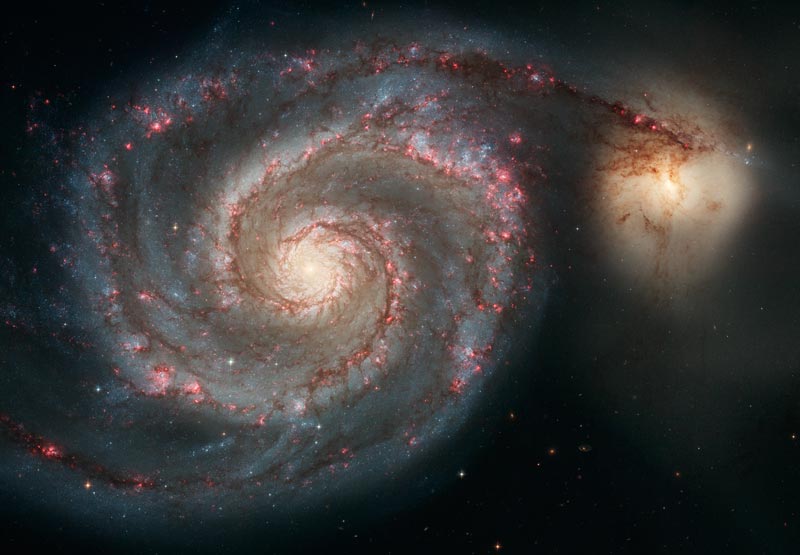LHC: Doomsday or Discovery?
By Evan FinnesWhere can you find the world’s largest refrigerator, the world’s fastest racetrack, the hottest spot on Earth, and the emptiest space for thousands of light years? CERN’s Large Hadron Particle Accelerator lays claim to each of these records. Propelled by 9300 super-cooled magnets (-271.3°C), a particle will travel 26,658m at speeds of 99.99% the speed of light through a vacuum whose pressure is 10-13 atm’s. Two colliding beams of particles will collide with energies of 14 Tev which will generate temperatures 100,000 times the temperature of the center of the sun.
The LHC will be conducing six experiments: ALICE, ATLAS, CMS, LHCb, TOTEM, and LHCf. The ALICE experiment (A Large Ion Collider Experiment) will attempt to recreate the earliest conditions predicted by the big bang. This will be achieved by colliding lead ions at speeds of 99.99% the speed of light. The collision will separate the ions into protons and neutrons, and under temperatures 100,000 times the heat of the sun, should further break down into a quark-gluon plasma, scientists hope to observe this plasma as it cools and recreates known particles.
On September 10th at precisely 10:28 am, the first step towards experimentation and hopefully discovery was taken, as a test beam successfully traveled the nearly 27,000 m tunnel. For CERN this was a moment of triumph as they observed their marvel of engineering come to flawless life. But their 20 year journey was not without pain, as CERN even had to battle a doomsday scenario lawsuit.
On March 21, 2008 Walter Wagner, founder of Citizens Against The Large Hadron Collider, filed a lawsuit against the US Department of Energy, Fermi lab, the National Science foundation, and CERN. The goal of the lawsuit was to put a time restraint on the activation of the LHC while safety issues were evaluated. The safety issues Wagner is concerned about include miniature black holes, and strangelets. Wagner fears that if the LHC creates miniature black holes, they would fill their tremendous appetites by feasting on the Earth. Defendants of the LHC say that this is of no concern because any black hole that does form would have a lifespan of about 10-23 seconds. Wagner also fears that if strangelets are formed they will transform the entire planet into a lump of exotic matter.
Once the experimentation has begun, and Wagner can once again sleep through the night, the LHC hopes to prove or disprove a major theory, discover new subatomic particles, search for extra dimensions, discover what causes the formation of mass, and explore the mysteries of dark matter. Whether or not all or even one the goals are achieved, one thing is for certain; the LHC will expand our knowledge and provide us with a clearer image of the universe in which we live.
